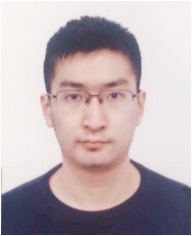Junjie Huang (黄俊杰)
Associate Professor
College of Computer and Information Science, Southwest University (SWU)
No.2 Tiansheng Roud, Beibei District, Chongqing China
Homepage: https://huangjunjie-cs.github.io
Email: junjiehuang.cs [AT] outlook.com or junjiehuang [AT] swu.edu.cn
Github: https://github.com/huangjunjie-cs/
Research Interest: Social Network Analysis Graph Neural Networks Computational Social Science
Introduction
Hi! 👋
In 2023, I joined the Computer and Information Science department at Southwest University (SWU) after obtaining my Ph.D. degree in Computer Science from the Institute of Computing Technology, Chinese Academy of Sciences (ICT, CAS).
In short, 🎓 PKUer -> ICTer -> SWUer.
I was advised by Prof. Xueqi Cheng and Prof. Huawei Shen.
My research focuses on computational social sciences fields (CSS). Computational social science is a broad field that necessitates interdisciplinary and highly collaborative researchers. You are welcome to email me if you have any promising and challenging CSS research problems.
Currently, I am working on modeling signed social networks (i.e., social networks with both positive and negative links) using graph representation learning.
Education && Experience
- Associate Professor, College of Computer and Information Science, Chongqing, Southwest University 2023- Research Interest: Computational Social Science (Social Computing), Graph Neural Networks, Social Network Analysis.
Department: Computer Science - Ph.D., Institute of Computing Technology, Chinese Academy of Sciences, Beijing, China. 2017 - 2023
- B.S., Department of Information Management, Peking University, Beijing, China. 2013 - 2017 Bachelor of Science in Information Management & Information System Bachelor of Science in Computer Science & Technology (Double Major)
Publications
- What makes a successful rebuttal in computer science conferences? : A perspective on social interactionJ Journal of Informetrics (JOI) , Volume 17, Issue 3, August 2023, 101427[Paper][Poster] [Summary]
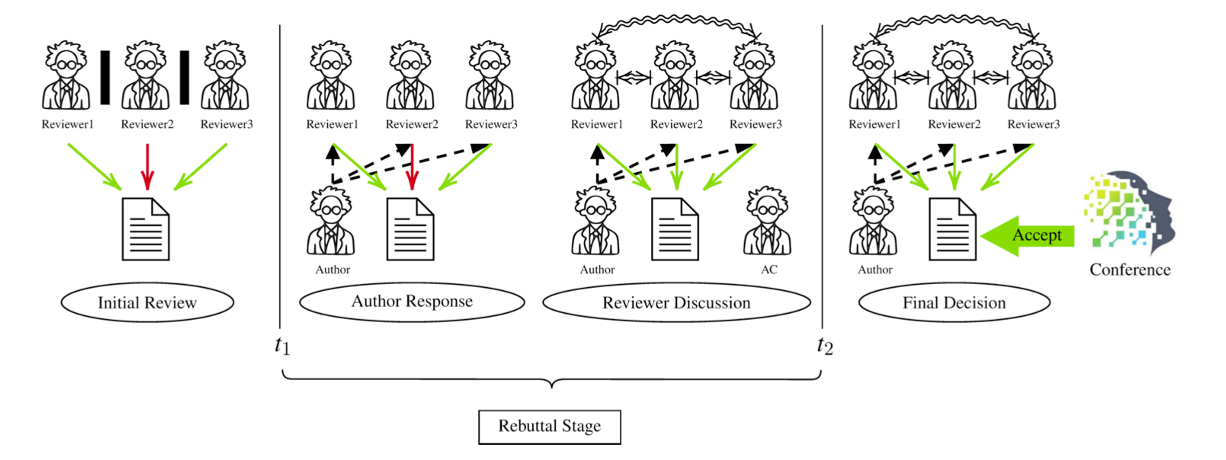
TL;DR: Illustration of peer review process in ICLR2022. ICLR2022 mainly includes four stages: initial review, author response, reviewer discussion and final decision. In this paper, we mainly focus on the rebuttal stage between t1 and t2.
- Negative Can Be Positive: Signed Graph Neural Networks for RecommendationJ Information Processing & Management (IPM) , Volume 60, Issue 4, July 2023, 103403[Paper][Poster] [Summary]

TL;DR: In this paper, we study the negative feedback in the recommender system, which is of great importance. We qualitatively and quantitatively analyze the three kinds of negative feedback that widely existed in real-world recommender systems. Our method is parameter-efficient for handling scenarios where negative feedback data is insufficient. Our methods outperform existing models on several real-world datasets.
- Adversarial Learning Data Augmentation for Graph Contrastive Learning in RecommendationC 28th International Conference on Database Systems for Advanced Applications (DASFAA2023) , Regular Paper[Paper][Slides][Github] [Summary]
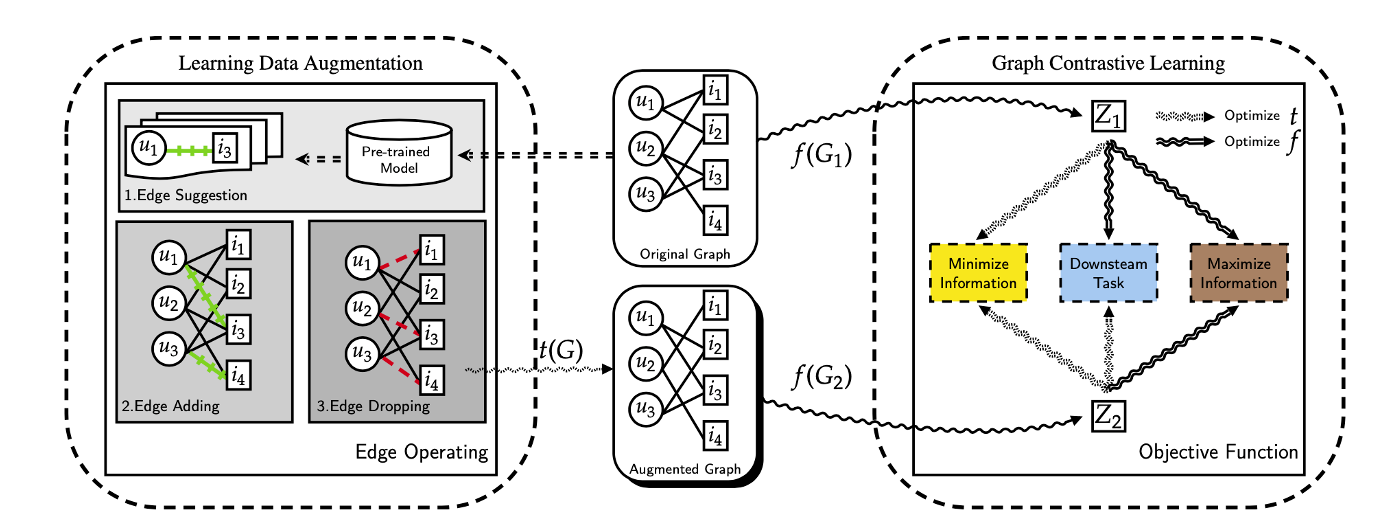
Illustration of LDA-GCL. TL;DR: In this paper, we first propose a new data augmentation (i.e., edge-operating including edge-adding and edge-dropping). Then, guided by InfoMin principle, we propose a novel theoretical guiding contrastive learning framework, named Learnable Data Augmentation for Graph Contrastive Learning (LDA-GCL). Our methods include data augmentation learning and graph contrastive learning, which follow the InfoMin and InfoMax principles, respectively.
- Signed Bipartite Graph Neural NetworksC 30th ACM International Conference on Information and Knowledge Management (CIKM2021) , Full Research Paper[Paper][Slides][Poster][Github] [Summary]
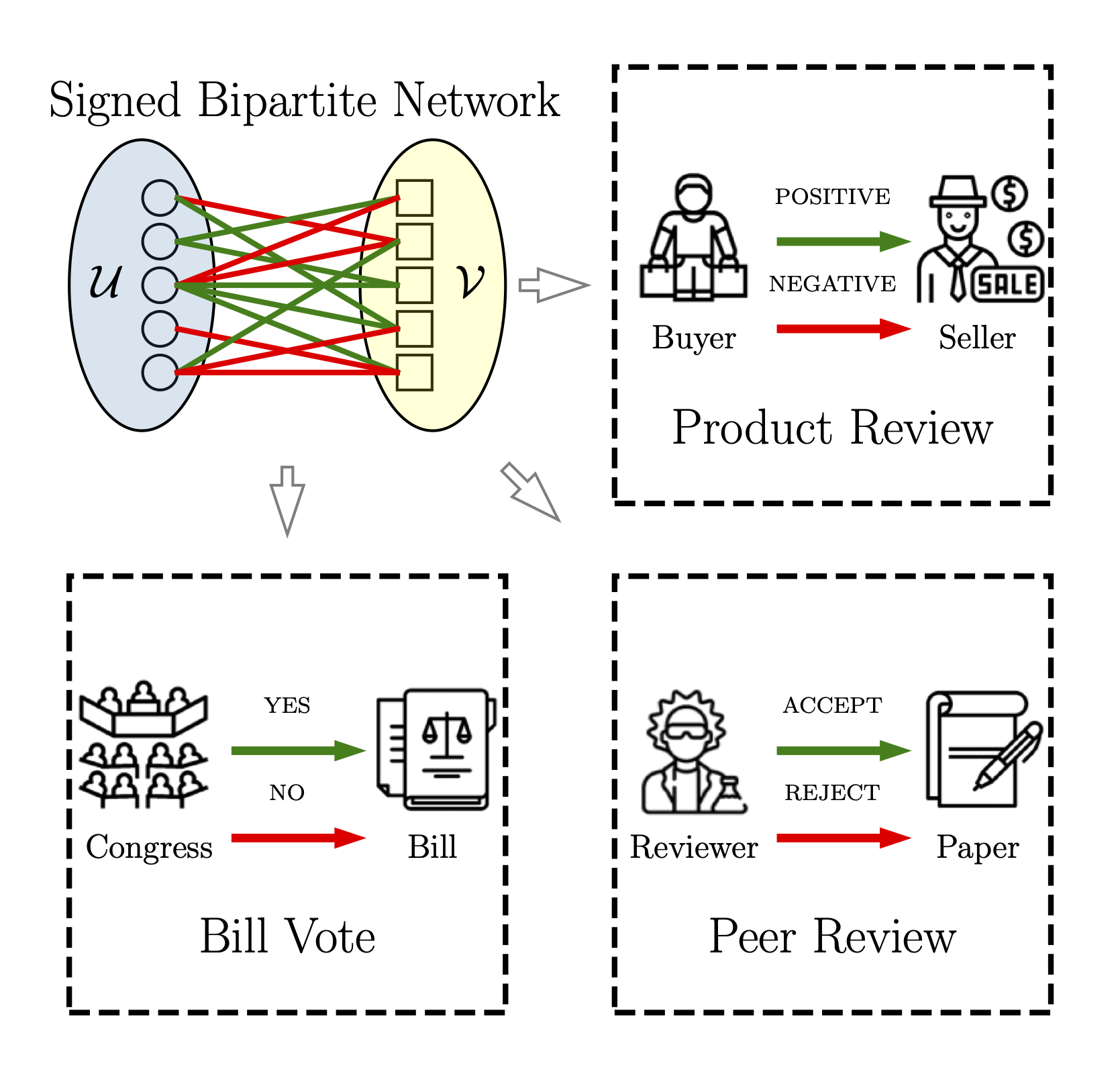
Common application scenarios for signed bipartite networks. TL;DR: Signed bipartite networks can be commonly found in many fields including business, politics, and academics, but have been less studied. We do some comprehensive analysis of balance theory from two perspectives on several real-world datasets. We propose a novel Signed Bipartite Graph Neural Networks (SBGNNs) to learn node embeddings for signed bipartite networks.
- How Medical Crowdfunding Helps People? A Large-scale Case Study on Waterdrop FundraisingC 15th International AAAI Conference on Web and Social Media (ICWSM2021) , Full Paper[Paper][Slides] [Summary]
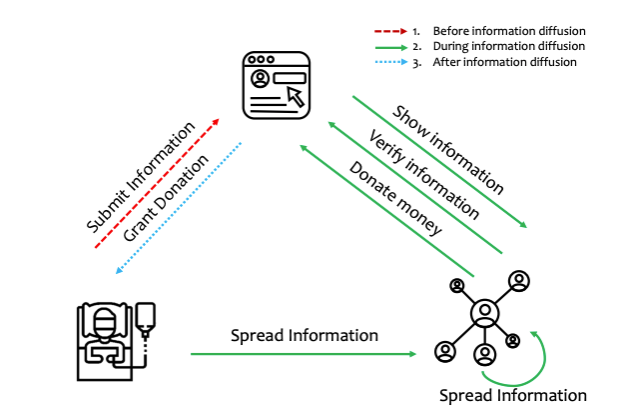
Illustration of medical fundraising on the web TL;DR: The spread of fundraising information along social network, is a key factor of fundraising success, and the social capital of fundraisers play an important role in medical fundraising.
- SIGNLENS: A Tool for Analyzing Polarized Social Relationship Based on Signed Graph Modeling
- SDGNN: Learning Node Representation for Signed Directed NetworksC 35th AAAI Conference on Artificial Intelligence (AAAI2021) , Full Paper[Paper][Github] [Summary]
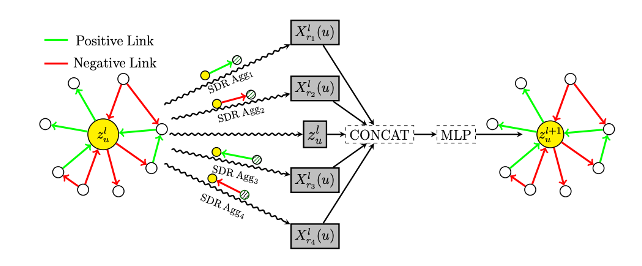
Illustration of SDGNN TL;DR: We propose a novel Signed Directed Graph Neural Networks model (i.e., SDGNN) to learn node embeddings for signed directed networks. Guided by two theories, our SBGNN model not only uses Signed Directed Aggregators but also simultaneously reconstructs link signs, link directions, and signed directed triangles.
- Signed Graph Attention Networks
- Single Node Injection Attack against Graph Neural Networks
- A Survey on Graph Convolutional Neural Network (图卷积神经网络综述)J Chinese Journal of Computers (计算机学报) , Chinese Version, 43.5 (2020): 755-780.[Paper]
- Label-Consistency based Graph Neural Networks for Semi-supervised Node Classification
Awards && Honors
- CAS Presidential Scholarship 2023
- Tencent Rhino-Bird Elite Training Program, Tencent 2021
- 4Paradigm Scholarship, ICT, CAS 2021
- Merit Student Prize, University of Chinese Academy of Sciences 2020
- Beijing Outstanding Graduate Award 2017
- Outstanding Graduates Prize, Peking Univerisity 2017
- Outstanding Paper Award of Undergraduate President’s Fund, Peking University 2017
- Award for Learning Excellence and May 4th Scholarship, Peking University 2016
- Sempio Scholarship, Peking Univerisity 2014
Academic Services
- Conference Reviewers
- Journal Reviewers
ICANN2020, ASONAM2020, ECMLPKDD2022
Journal of Neural Networks, IEEE Transactions on Computational Social Systems, Information Processing and Management, Plos One
